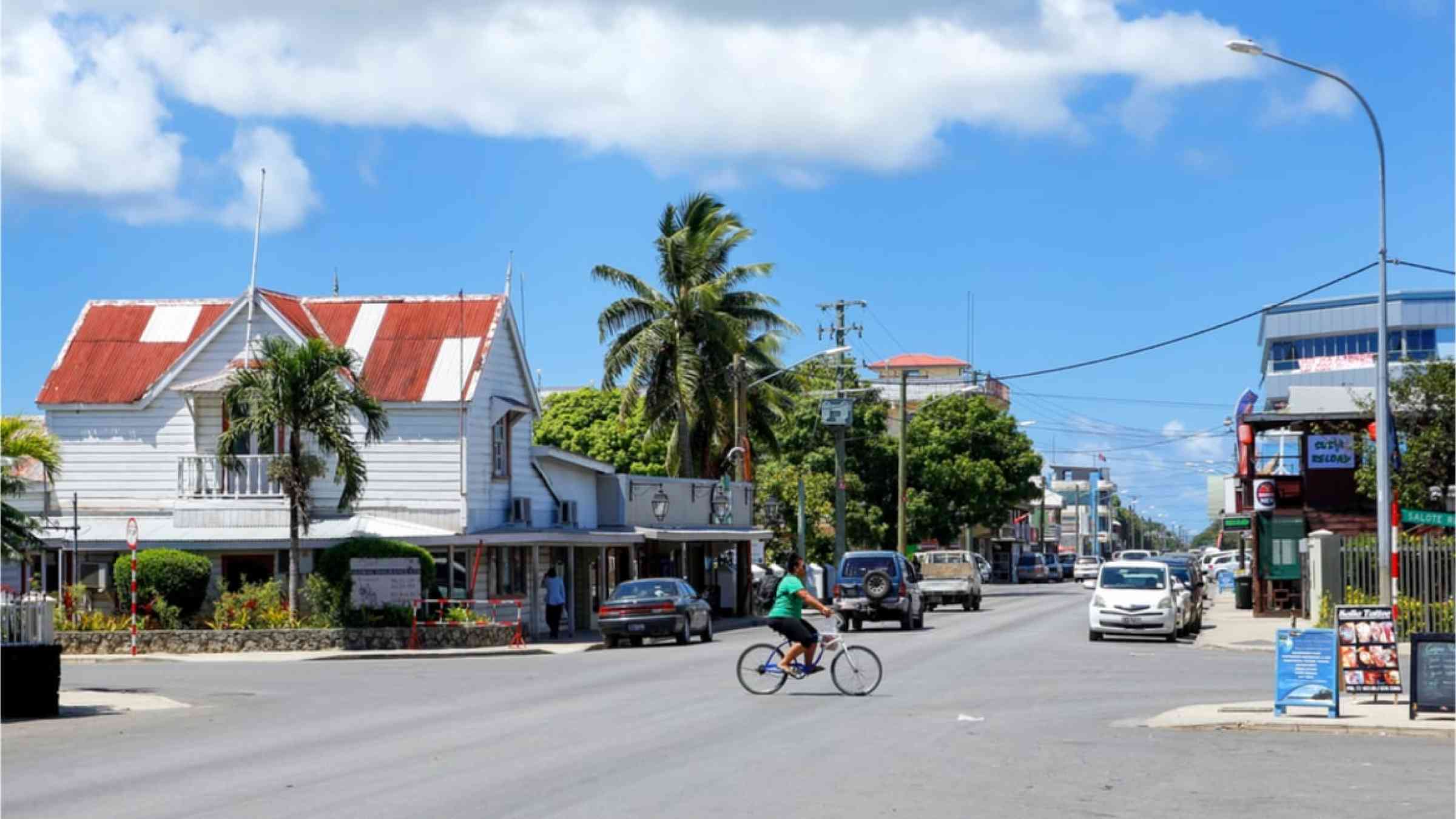Helping children in Tonga COPE with natural hazards and disasters

Nadi, Fiji - The Kingdom of Tonga makes up the 35 countries and over three million children that have access to the COPE disaster book series targeted at increasing their disaster resilience.
The World Meteorological Organization (WMO), serving as scientific advisor for the COPE series, has facilitated the publishing and promotion of 10 illustrated children’s books that cover natural hazards. The books are translated into 18 different languages, including Tongan.
The COPE children’s series tell the stories of disasters through the eyes of four children, Candy, Ollie, Ping and Eddy who are guided by Grand Mistress Fu. They span natural hazards ranging from floods to earthquakes, and from wildfires to tropical cyclones telling relatable stories in an imaginative way that help children cope, be prepared, and respond accordingly.
It is the book on Tropical Cyclones that has been translated into the Tongan language with plans to translate all books within the COPE series that are relevant for Tonga.
“Our children are part of the vulnerable group to hazards and disasters, we need to teach them how to react when hazards happen because there will be situations when adults will not be around. We need to know that our children will be able to respond well and are prepared,” said Mr Ofa Fa’anunu, the Director of Tonga Meteorological Services who has worked with the WMO to facilitate translation of the book.
“We want to translate the whole series, have them printed and distributed in schools across Tonga. Funding has been identified through UNICEF and our national partner the National Disaster Reduction Management Office will carry on this work”.
The COPE series is provided free of charge, without any copyright restrictions and is up to the partners in each country to distribute the materials where needed. They are developed with the support of up to 30 collaborators including the Government of Tonga, who contribute and provide advice as to the content of the books.
While there are plans to translate, print and distribute the book series across Tonga, the Pacific Meteorological Council also considered translating and distributing the series across all Pacific Islands countries.
As one of the top ten disaster risk prone countries in the world, for Tonga it is imperative that both the adults and children are well informed, educated and ready to act when needed. For example, one of the key lessons learnt in the book on tsunamis is to get up to high ground, for the book on earthquakes the key message is to drop, cover and hold. The remaining books also span the different hazards of floods, storm surges, landslides, wildfires, droughts, volcanoes and heatwaves with the plans to release a book on blizzards in October this year.
“We know that when you educate and keep our children aware, they in turn share that information with their family members. That is what we hope to see. That through this our children will share these lessons in their home and their families and they will all act and respond together,” said Mr Fa’anunu.
“Everything we can do to help our Tongan families be prepared, resilient and survive – is important to us all. We work so that no one will be left behind. We have a Tongan saying “Ko e hakau ‘o e ‘aho ni ko e fonua ia ‘o e kaha’u” “Todays reef will be the country of the future”. Empowering the youth will ensure future resilience.”
The COPE Disaster Book Series was featured during the Sixth Pacific Meteorological Council in Fiji this week during the Empowering Children with Disaster Risk Knowledge Agenda Item.